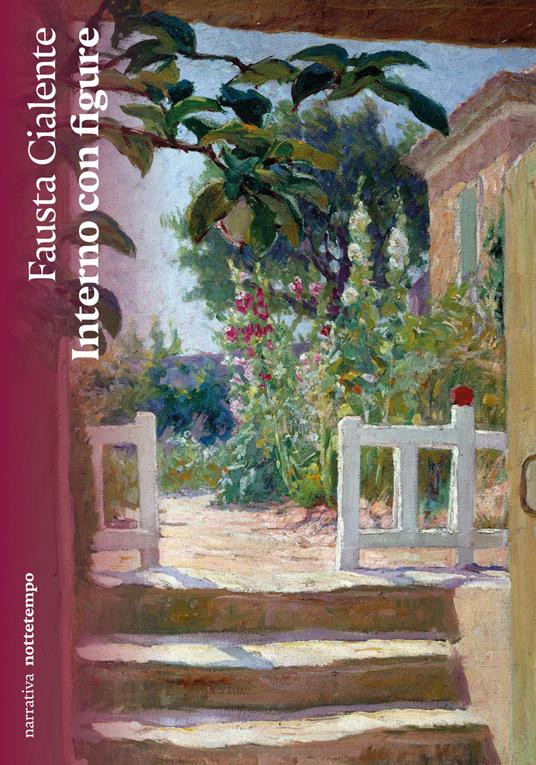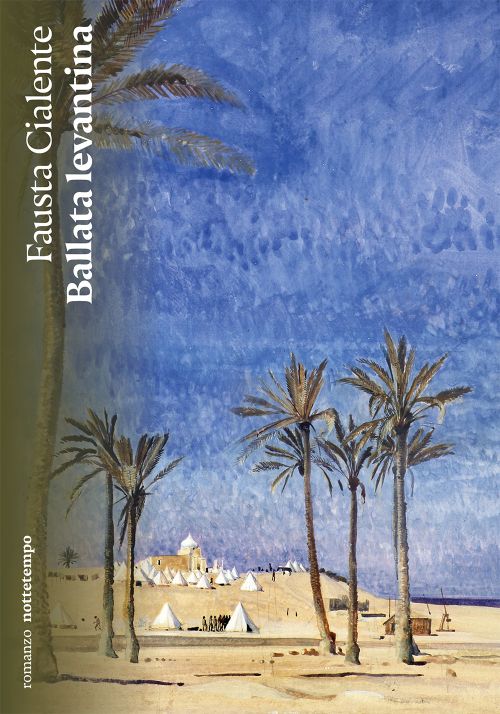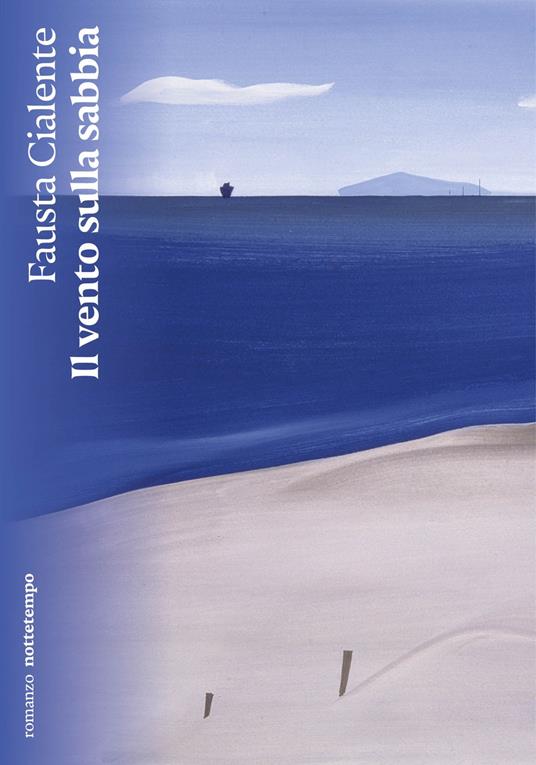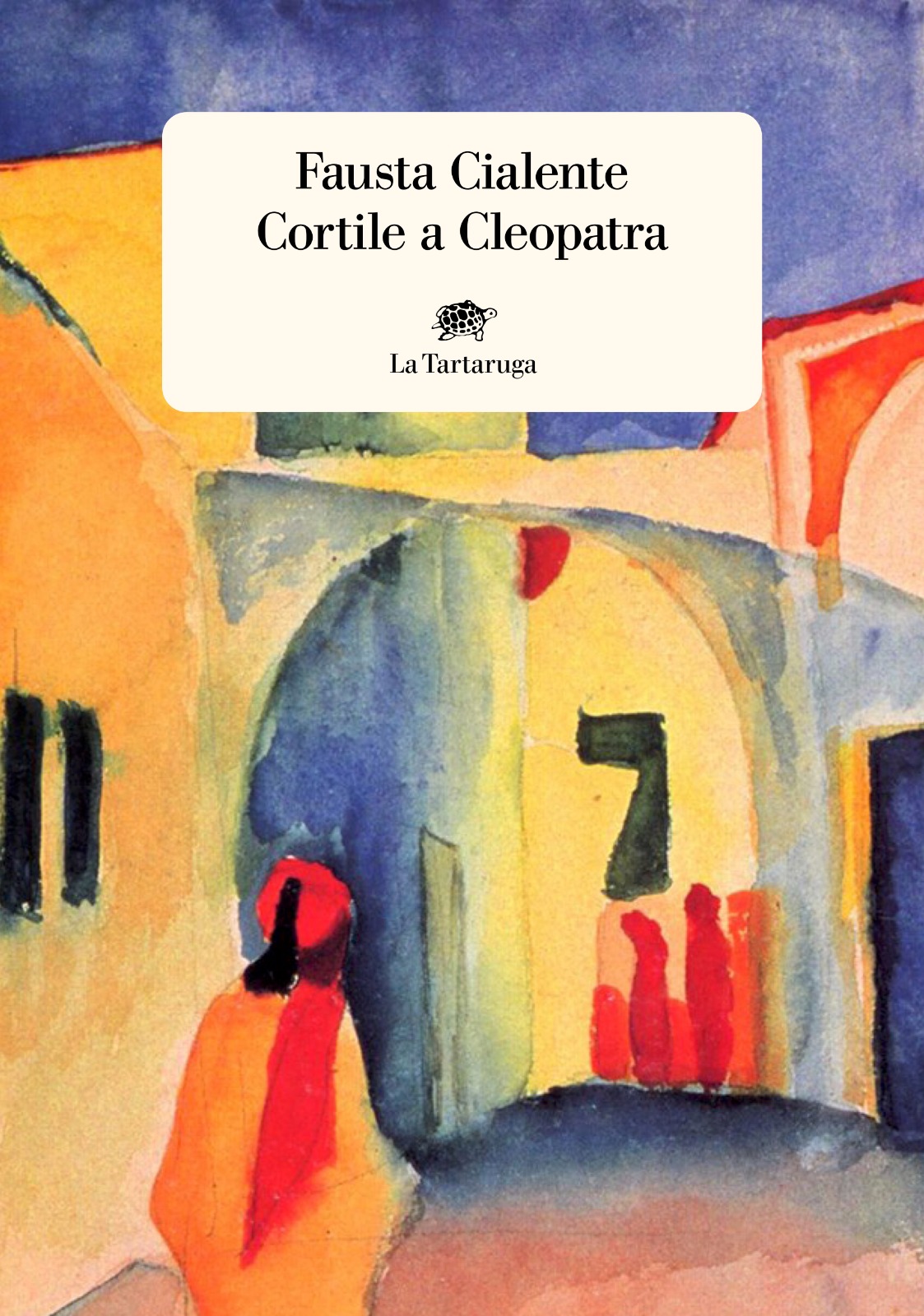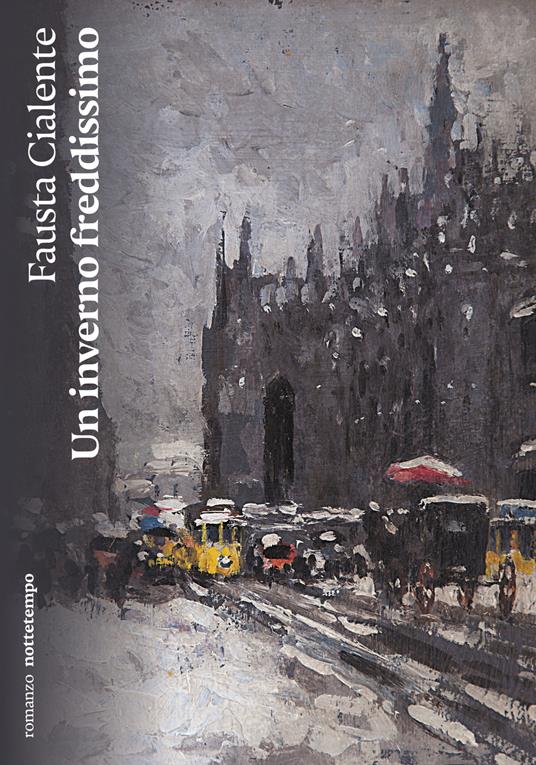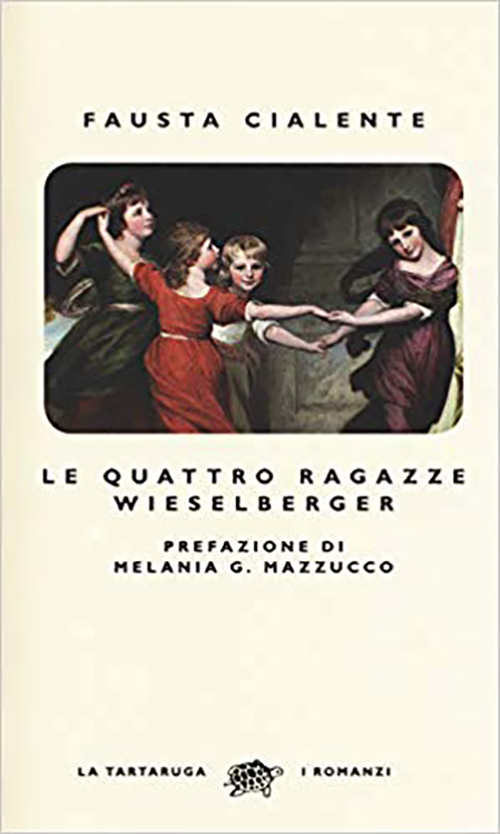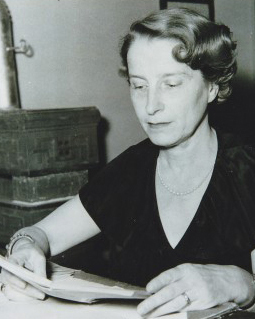Natalia
Fausta Cialente Estate

A lesbian love story banned in Italy for over a decade.
The novel chronicles, in sensual detail, the life of its eponymous heroine through childhood, adolescence, marriage, childbirth (that turns into a nightmare), escape and finally maturity. Her love for a woman is the mark by which she measures all future sentiments.
Natalia is Fausta Cialente’s debut novel, first published in 1930, when it won the “Premio dei Dieci”. However, Fascist censorship prevented the book from reaching a wide readership: when its small first print run sold out and the publisher planned to reprint, officials in Mussolini’s government ordered the author to remove sections of the book – including what Cialente referred to as a ‘small lesbian episode’ – and she refused. Natalia did not appear again in Italy until a revised version was published in 1982, and it has never been translated into English. A partial translation into English is included in the Italian Literature in Translation Vol. 4, edited by Howard Curtis.
Excerpt from the novel, translated by Laura Shanahan
published in Virginia’s Sisters (Aurora Metro), edited by Gabi Reigh.
Natalia said she had to go out, to send a telegram home. Obtaining this modicum of freedom, which ran counter to provincial customs, involved such fuss that when she found herself outside, alone, it seemed to her that the grey but gentle face of her liberty was sketched lightly on the walls of the town.
By this time Malaspina would already be waiting for her. At the end of the street she saw a carriage pull up; she climbed in and it crossed her mind that she could take a roundabout route and keep her young man waiting. Instead, tapping on the glass, she called out to the coachman: ‘The Albergo del Papa.’
*
Leaning against one of the portico’s columns, his feet at the edge of a puddle, Malaspina felt weary – almost feverish. His journey had been strenuous and anxiety-ridden, and now every time a woman passed by, skirting around him, his heart missed a beat and left him breathless. The entrance to the hotel was beneath the portico – it was a fairly modest hotel, but he would take a room there for the night if Natalia wanted to meet him the next day as well. His anguish arose from uncertainty as well as from excitement: it was like being vaguely seasick, and he felt almost nostalgic for those bare yet faithful acacia trees he had left behind, betrayed for the sake of standing by this wall, tormented by the winter wind. He didn’t dare think she might not come, but felt his heart inflate with rebellious outrage in response to some appalling injustice which at that precise moment was falling like a boulder upon an obscure innocent creature somewhere in the world, crushing it to the ground, leaving it flat and wretched.
And yet a carriage had pulled up, black and dripping; above it he saw the glistening-wet back of a coachman, who was holding the reins and lowering his whip. Malaspina felt faint with emotion. In the window, through the rain, Natalia’s bright, tranquil eyes were like an astonishing, unexpected springtime; she was fresh as an almond within the plush darkness of the mothball-scented carriage; and as he gazed at her, motionless and overcome, the carriage door opened, a hand reached out and a clear, calm voice said: ‘Come on, get in!’
The carriage juddered off again. Her voice seemed to him not only calm but sweet, and her gloved hand remained in his, held tight. He found, with a spasm of his heart, that she was less beautiful than her pictures had led him to believe, and could not understand why she seemed nonetheless better in person. Perhaps because it was truly her, and no longer just a picture. Desperately he asked himself: What do I do now? Kiss her? But how can I?
Her eyelashes were lowered now, and while feigning modest shyness she was in fact thinking: He’s a nice enough looking boy… Yet I don’t like him. No, I really don’t think I can… And how am I going to tell him? I just don’t know.
He was the first to speak, his voice breaking with emotion: ‘Forgive me… I’ve had to come a long way… and at this time of year…’ But his breath was heavy, a little sour. She looked away and thought again: Why did I come? Why don’t I just tell him, right now, to get out and go on his way?
The town passed by slowly – the pot-bellied grilles on the ground-floor windows, and behind them a few bored faces that were just then forgetting their troubles and the weather and yawning at the beginnings of an overcast sunset beyond the rain-pearled panes of glass. The silence in the carriage had gone on too long for Malaspina who, painfully intimidated, began to say in a warm, choked voice: ‘Natalia…’, but she did not let him go on and her voice, cold as a blade, swiftly pierced his heart and dug mercilessly into it: ‘We made a mistake, you must see that – I knew this would be too difficult; I saw before you did… that perhaps you didn’t feel as you should have. But I hope that now you understand. You must see, it would have been better if none of this had happened.’
Indeed Malaspina now knew – the boulder had rolled silently down an invisible slope – who the flat, wretched man was, face-down in a dirty stream. But his shyness and his pride were like outsized roots twisting around him, tugging him underground, suffocating him; perhaps all she now saw was a fragile shrub with small, pitiful, anaemic leaves. He would say nothing in defence of the love he had come to feel for her – with every right, as he well knew. Love, tenderness and now despair were shameful wounds to which he must not confess, and he broke out in a cold sweat at the idea that he might fail to hide them. His head was spinning like a windmill; the world was empty and frigid as a tomb – what could he do but look on as this scene of betrayal played out? Natalia was fresh as springtime – that was exactly how she had looked to him – and her cruel will would keep her that way even as she grew old, amid that mothball smell. At fifty years old, in her black carriage, she would drive through ever-new streets and dig her blade into other young hearts, ones that had not yet even been born. Malaspina could not avenge himself; and yet he was unaware that Natalia had turned her head away not so much from indifference but because his dense breath was bothering her. His misery got the better of his pride for a moment, and in a treble voice he said to her: ‘Your letters were the most beautiful book I have read in my life. What should I do with them?’
‘I don’t want them back… Perhaps for a while yet they may still be the most beautiful thing in your life.’
It was a dismal and conceited wish. She had forced a mountain to collapse, and now seemed to be trying to impose order on its continued crumbling.
‘Goodbye,’ he replied in the most contemptuous tone he could muster through the little sea of tears threatening to drown him, and he got out while the horse was still trotting onward. The carriage jolted and swayed to one side. Little more than a quarter of an hour had gone by.
*
…All this was nothing yet, believe me, Jacopo: when the dizzy daze of those first kisses, which I could not decently avoid, had subsided, up from somewhere that was certainly not my heart rose something that had no place in that scene – something you know all too well – my sense of irony. I was almost shaking from the fear that I would start laughing. All the while he was telling me of a room that awaited us who knew where, since we couldn’t very well carry on in that rickety old carriage – my lower back still aches from how it shook us about. As he got out, he said to me: ‘Tomorrow, if you like…’ Well, would you have consented to some vague ‘tomorrow’? Instead I replied: ‘Today, right now – I don’t want to hear another word about tomorrow,’ because at least if he agreed, he would clearly be in the wrong. He agreed, the fool! He didn’t see it was a trap. I could have asked anything at all of him, but we spoke no more – I had backed myself into a corner and I must have looked very anxious, because every now and then he squeezed my hand as if to encourage me, not knowing that I had plenty of courage and that the worst was yet to come.
At the entrance to the hotel, before getting out of the carriage, I let down a veil from my hat – farcical, I know, but it had to be done. The place was rather modest: there wasn’t even a lift; we had to climb the stairs on foot. The room, too, was modest (he informed me that he had chosen this hotel so as not to run the risk of anybody seeing me there) and I went straight to the window to look out. Through the gap between the plain but well-starched curtains I saw it was still raining; there was a carriage parked by the stables outside and all the straw was soaking wet. In the room, there wasn’t so much as a chair – doubtless they had forgotten to put it back after cleaning the room, for clean it was. In short: a bed, a table, a washstand. But nothing to sit down on except for the bed, which I found most annoying, believe me. Malaspina had begun again to apologise for all these shortcomings, and indeed for the seediness of the whole situation, but really it was my fault, he said, because I had wanted to meet him in a town that was neither my home nor his. ‘But you live in the countryside!’ I said to him, a little irritated, and he looked surprised.
What could we do but sit down on that bed? Standing there looking at each other was just too ridiculous. I must repeat, the room had only three things: a bed, a washstand, a table. And some soap in a little dish. These humble surroundings hardly offered scope for a vista, and yet a vista has remained in my mind. It is the one he described to me: his home, his fields, his horses… and he talked also of marriage, of a wedding that must take place as soon as possible, he having suffered so much during the war, just as he wrote in his letters. But when he said ‘get married’, I wanted to reply: ‘Are you mad?’ – and I also felt the urge to laugh, as if that meagre single bed were already garlanded with orange blossoms for the wedding night. My sole desire was to get out of there as quickly as I could, but I didn’t know how to get past the locked door – he had the key. Among the dark stains on the mirror I could see my pale face, and this too irritated me. The bed had warmed up a little, but he didn’t dare touch me. We could have been stuck in this stalemate for heaven knows how long, since neither he nor I was brave enough to admit defeat. Meanwhile the light was fading; the gaps between the curtains were filling with darkness; the scent of the soap floated through the air (it seemed to me like the sweet soul of a little death); and in that penumbra I saw his sad face, his eyes glistening as if on the brink of tears, and I felt I had to make something happen, something that couldn’t happen through us just sitting there. So I said: ‘I hope you understand…’
It didn’t mean much, this remark of mine, but a reply or a question from him could perhaps have got us a long way. He settled for drawing me a little closer to him; his lips lingered at the base of my neck (I must remind you that I was fully dressed – I had taken off only my hat); I felt them get hotter, burning me like a fiery seal – and all the while I watched a little vein on his forehead swell and throb. I thought that, if it were cut open, I would see thick, dark blood flow out; perhaps I trembled a little, and perhaps that was why his hands suddenly gripped my hips firmly, found themselves, somehow, on a dangerous path, and would soon have got the better of my stupid irony. I didn’t want to shout out, but I defended myself with hostility. My salvation came in the form of two hotel porters who, just at that moment, were dragging something very heavy – most likely a trunk – along the corridor. They were labouring in silence so as not to disturb the guests, and I heard the wood creaking and the men wheezing as they pushed. I, too, struggled, and just then they crashed against the door. The blow made the whole room shake; the windows jangled and the men outside cursed. I threw myself off the bed without a sound, and Malaspina jumped up to block the doorway. But the door hadn’t opened at the blow, and the men now were moving on, grumbling – I heard them go down the stairs. When Malaspina turned around I already had my hat on and the veil down. In acid tones, I told him: ‘I’m going down to find a carriage; you, meanwhile, will pay the bill.’ I don’t even know what his response was; I don’t know if he spent the night at that hotel. As I emerged into the cool rain, my first thought was that he didn’t know where I was staying and he wouldn’t be able to trace me. The flooded, mud-covered streets came to meet me, holding out their lamplit arms, and behind my fleeing steps they wove a maze in which Malaspina would surely be lost.
*
That evening, the fires in the bedrooms had been lit. Crouching down on the rug, Natalia kicked off her slippers and warmed her feet in front of the hearth. Her stockings, which had been not just damp but soaked through after her wanderings in the rain, had dried out now, so she took them off and left them in a pile by the fire. She had written a long letter to her brother and was satisfied with the day now concluded: her adventures and inventions were so closely and potently entangled in her memory that she could barely distinguish between them.
Silvia came and went between the two rooms, the connecting door remaining open. She tidied up the garments strewn about the room, and in response to her asking why on earth Natalia had written such a long letter to Jacopo when she had only just sent the telegram home that had kept her out for so long, Natalia responded that the telegram was only to confirm she had arrived, and her brother and Nina would undoubtedly be expecting something more.
“So did you write about me, then? About Mamma?” asked Silvia, stopping and looking down at her with curiosity and a hint of severity. Smiling slyly, Natalia said: “Yes, I told him you’ve grown ugly as sin – and I don’t know how I’m going to bear it!”
“What a stupid little liar you are! I’d really better read it, that letter of yours, since you’re obviously hiding something from me – I’m going to have to keep an eye on you…”
Enveloped in a soft white dressing gown, she sat down next to Natalia after tossing a cushion onto the rug. Natalia, too, was in a dressing gown: a kimono of smooth yellow silk, which she pushed back a little on her chest to show that, underneath it, she was naked.
“Look, I’ve got nothing else on,” she murmured. “But I’m perfectly fine in front of this lovely fire… Today’s been pretty awful – there were so many people at the post office…” Quickly, she thrust her hand under Silvia’s nose, cutting off any further questions. “The scent of that orange I peeled earlier is still on me, can you smell it? I like it.”
For a few moments they listened to the deep silence of the house.
“Your mother’s asleep,” she added, under her breath.
“Asleep, yes.” Silvia let out a faint sigh. They thought of the old woman, who in reality, and as they both knew, was not asleep, but got up every so often to straighten the wicks of the candles burning before the portraits of the dead boys, to water the potted plants, to adjust the curtains and make sure they were properly closed, before dropping off at dawn and then dozing through almost the entire day.
Silvia was now violently illuminated by the flames from a newly added log, and every now and then Natalia stole a glance at her before turning back to the fire, not wanting to look as if she was spying on her or – as in fact she was – entranced by her quiet beauty. It seemed to her that the curve of Silvia’s mouth took its shape from the lingering silence – a silence that did not necessarily signify either foolishness or coldness. In spite of the bereavements that had brought sorrow into her home, she had not lost that old habit of lapsing into silence with a faint smile on her face; yet the possible reasons for what appeared to be a mysterious, peaceful happiness unsettled Natalia – because really she knew nothing about Silvia’s life.
No, not quite nothing, came the unexpected thought: and this fiancé of Silvia’s, who perhaps had hardly even seen her and hardly touched her at all, began to expand in her imagination until he had taken on the improbable dimensions of a hulking, vulgar, violent being – though from Silvia’s brief account of the episode he had emerged as an almost non-existent figure. Had he held her in his arms, perhaps? Had he pressed those breasts concealed beneath the white dressing gown? Had he written to her from the trenches during the war – ambiguously worded letters like poor Malaspina had written to her? (She was dreaming, now, in a kind of daze.) She could see him before her, with the wide, blood-red nose of a heavy drinker, the low and menacing brow of a delinquent, hands covered in hair… the log in the fireplace burst, sending a shower of sparks into the air. Silvia remained silent, beautiful and serene, certainly unaware of how Natalia had saved her from that loathsome creature: the image that had emerged from the flames had already vanished, leaving only a pile of hot ashes. The fire was languishing now, and there was no other light in the room; shadows slid down the walls, slipped out of the paintings, felt their way blindly about the room. She could no longer even see the portrait of her father. (And how would I be able to see that, fool that I am – the fire is here in Silvia’s room; the one in mine has gone out.) But a heat that did not come from the flames was now scorching her feet, climbing slowly upwards towards her mind.
Of the affair now concluded and condemned to the past – the abandonment of Malaspina – she had said nothing to Silvia, despite her earlier intentions; in fact, she now felt that doing so would be enormously embarrassing. She would be incapable of inventing an outrageous yet convincing ending to the tale, as she had in her letter to Jacopo, and the truth would be painful to recount – a little ridiculous, too. This house, darkened by so many bereavements, the old adulteress, the blind walls, could have made the perfect setting for the story of her and Malaspina. But the quiet, faded nobility of Silvia’s existence – her beauty – had compelled her to renounce what now seemed only a mediocre adventure. Silvia’s voice and her smiles delicately pricked Natalia’s skin, like the tender thorns of a wild rose. The secret of her birth seemed to wrap her entire being in mystery: she sparkled with luminosity within its hold, and perhaps this attraction had played a part in Natalia’s rejection of the unfortunate Malaspina. But if now he was wandering the streets with the memory of her, bitter and scornful, coursing through his mind, she felt neither culpability nor remorse. Hadn’t she been disappointed, too? Yet this did not prevent her from moving on – tomorrow was a new day, and she realised that already she was setting the scene for the next act. That little white flower at the hem of a skirt trailing on the grass by a well, back in her childhood – could it truly have led her to believe that nothing and no one had, since then, breached the hem of that skirt? Now, the vision mingled with a desire to somehow bless the mourning that had kept Silvia apart from it all and preserved her in the state in which she now saw her: healthy, chaste and silent.
The log, now almost entirely embers and covered with a fine layer of grey ash, crumbled to pieces with a faint crackle. But although Natalia was fascinated by the silence and stillness, she could not help remembering the hidden depths she had sensed in Silvia when they were both reading the words Jacopo had written so many years ago on the back of a sheet of music. And now the fire languishing in the hearth ignited fiercely within her, calling to her like the edge of a precipice: she was not so astonished, then, to find her hands, quicker than her conscious will, slipping under the lapels of the white dressing gown – and her hands must have been really quite cold, since the warmth of those soft breasts felt so gratifying to her touch. She found them simultaneously firm and yielding. Briefly she thought: If I had to tell someone about this, where would I find the words? But she could not see that Silvia’s eyes were veiled, because the glow from the flames scarcely illuminated the hem of the dressing gown, and she could not have explained how it was that, kissing her, she managed to push her down slowly onto the rug.
So she was mature, now, the silent virgin: like a ripe fruit she had fallen, coming to rest in Natalia’s arms.
I didn’t mean for this to happen at all, she thought in confusion, and nonetheless she used Silvia’s body as confusedly she had dreamed of doing; but it was the other woman alone who experienced unanticipated pleasure, and from that body, irrigated by bliss, gratitude rose up like a wave. Natalia was conscious of being the cause of this, and maybe she hadn’t intended to go so far. Silvia no longer shuddered in response to her caresses, but perhaps they had touched the secret of that enduring stillness; meanwhile Natalia’s unexpectedly skilful hands had lost the aroma of the innocent fruit, and her warm feet could feel the andirons cooling in the fireplace.

